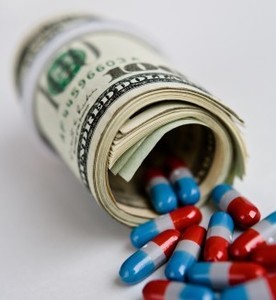French drugmaker Les Laboratoires Servier (Servier) and five generics companies have been fined a total of Euros 427 million by the European Commission due to practices delaying the entry of generic perindopril, a medicine to treat high blood pressure.
Servier and generics makers fined for pay-for-delay
Home/Policies & Legislation
|
Posted 08/08/2014
 0
Post your comment
0
Post your comment

The Commission opened proceedings against Servier and the five generics companies: Niche-Unichem and Matrix (now part of Mylan), Teva, Krka, and Lupin, on 8 July 2009.
According to the Commission’s decision Servier acquired new technologies to produce perindopril and used patent settlements with generics makers to make generics market entry more difficult or delayed, violating European antitrust law.
According to the Commission, the patent settlements and technology acquisition meant that Servier retained the monopoly on its blockbuster blood pressure control medicine Coversyl (perindopril) for a further four years. During which time patients and national health systems were deprived of the benefits of competition, meaning earlier access to a cheaper version of the medicine.
The Commission investigation concluded that Servier committed an abuse by pursuing an anticompetitive strategy to delay the entry of cheaper generic versions of its drug perindopril. The Commission’s decision of 9 July 2014 therefore imposes a fine of Euros 331 million on Servier and a total amount of Euros 96.7 million on the generics manufacturers.
Mr Joaquin Almunia, Vice President of the EC responsible for Competition Policy, said of the decision that ‘these so-called “pay-for-delay” agreements are not acceptable’ and that this case ‘is a serious breach of EU antitrust rules, and the companies have been sanctioned accordingly’.
This is not the first time the Commission has imposed fines on companies for what it terms ‘anticompetitive agreements’. Denmark’s Lundbeck and four generics companies were fined Euros 146 million in June 2013 for similar pay-for-delay deals, related to Lundbeck’s antidepressant Celexa (citalopram) [1].
Six months later, Johnson & Johnson and Novartis were fined Euros 16.3 million for anticompetitive agreements, which the European Commission believes delayed the market entry of a generic version of the painkiller Duragesic (fentanyl) in The Netherlands [2].
Related article
Problematic pharma patent settlements decrease in the EU
References
1. GaBI Online - Generics and Biosimilars Initiative. Lundbeck and 4 generics makers fined for pay-to-delay deals [www.gabionline.net]. Mol, Belgium: Pro Pharma Communications International; [cited 2014 Aug 8]. Available from: www.gabionline.net/Policies-Legislation/Lundbeck-and-4-generics-makers-fined-for-pay-for-delay-deals
2. GaBI Online - Generics and Biosimilars Initiative. EU problematic patent settlements remain at low level [www.gabionline.net]. Mol, Belgium: Pro Pharma Communications International; [cited 2014 Aug 8]. Available from: www.gabionline.net/Reports/EU-problematic-patent-settlements-remain-at-low-level
Permission granted to reproduce for personal and non-commercial use only. All other reproduction, copy or reprinting of all or part of any ‘Content’ found on this website is strictly prohibited without the prior consent of the publisher. Contact the publisher to obtain permission before redistributing.
Copyright – Unless otherwise stated all contents of this website are © 2014 Pro Pharma Communications International. All Rights Reserved.
Source: Europa
Guidelines
US guidance to remove biosimilar comparative efficacy studies
New guidance for biologicals in Pakistan and Hong Kong’s independent drug regulatory authority
WHO to remove animal tests and establish 17 reference standards for biologicals

Home/Policies & Legislation Posted 07/01/2026
ANVISA tackles 24-month backlog in biologicals post-registration petitions

Home/Policies & Legislation Posted 10/10/2025
The best selling biotechnology drugs of 2008: the next biosimilars targets








Post your comment